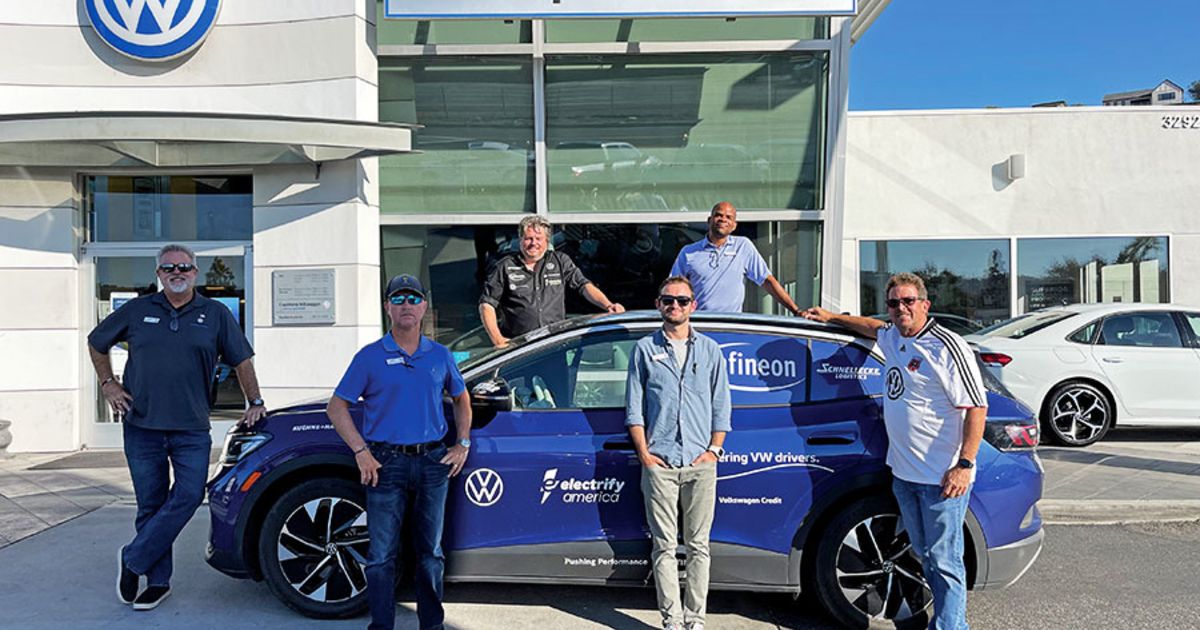
The semiconductor shortage, along with pent-up demand for new and used vehicles, has created the perfect storm for mismatched supply and demand. And dealers are taking advantage of vehicle shortages by adding big markups to vehicles or ladling on thousands of dollars in add-ons.
Whereas the sticker price used to be the upper end of the transaction price on dealership lots, it’s now the starting price. But not at the Capistrano Volkswagen and Capistrano Mazda dealerships owned by Miles Brandon in Southern California. As tempting as it may be, Brandon is sticking to his decades-old pledge not to sell above sticker price.
“I feel sticker is a fair price,” he said.
Brandon’s first temptation to add market adjustments to high-demand vehicles came in the late 1990s after he bought Capistrano Volkswagen in the coastal town of San Juan Capistrano. The launch of the New Beetle was nine months away and shoppers were asking whether the dealership would take orders for the highly anticipated revival of the German automotive legend.
More importantly, buyers wanted to know whether Brandon would sell the New Beetle at sticker price or add thousands of dollars, as other dealers in the region were.
“Those were both easy questions for me — yes to orders and no to markups,” Brandon, 60, told Automotive News. “We quickly developed a huge order bank, at times in excess of 250 vehicles.”
While the New Beetle launch 24 years ago cannot be compared to the widespread inventory shortage of today, the debate over market adjustments hasn’t changed much.
Brandon’s mentor, now-retired San Diego auto dealer Ken Nieman, felt strongly about never selling above sticker price. “It’s easier to replace a car than a customer,” was one of Nieman’s lessons, Brandon said.
“I lost sleep one night realizing how much I was leaving on the table,” Brandon said. “But I realized that most customers don’t think in terms of supply and demand curves, and that making friends for life is more important than catching the big one today.”
The typical $3,000 markup for the New Beetle, multiplied by hundreds of cars, could reach into the millions of dollars back in the day.
While there was a steady supply of New Beetles from the factory, VW couldn’t catch up with demand for about 18 months, Brandon said. That created an opportunity to make a lot of money from markups — or at lot of happy customers buying at sticker price.
Among his satisfied New Beetle customers was a local couple who worked in marketing. They later helped the dealership develop the Smileage Guarantee, a set of promises and perks. One is that no vehicle is sold over sticker price regardless of popularity. Perks include a seven-day return policy and a knowledgeable staff focused on customer satisfaction.
Brandon added a ground-up Mazda dealership next door to the VW store in 2015.
The Smileage Guarantee at the two San Juan Capistrano dealerships was the subject of an Automotive News Best Practices story in 2019.
Last year, combined sales at the dealerships were 2,012 new and 780 used vehicles, a decline from pre-pandemic 2019.
Brandon is sticking with the sticker price promise in the current climate, even though he agrees that markups can be justified if they are limited-edition models and can be flipped for a profit in the used-vehicle market.
But maintaining a loyal customer base in a relatively small slice of the Southern California car market is more important than windfall profits, he said. And current profits, even at sticker, are something that he doesn’t hear dealers complaining about much.
There’s an additional benefit as well: happy store employees handing the keys to happy buyers, with none of the markup drama. In today’s market, sticker price is considered a good deal on both sides.
Also, the Capistrano dealerships aren’t pushing equipment add-ons to pad the price. As part of the vehicle transaction, customers are never obligated to buy anything beyond their new Volkswagen or Mazda, Brandon said.
“I’ve had other dealers ask me if I really wasn’t charging over sticker, and whether all of my customers would remember that,” he said. “I said, ‘No, they all won’t remember, but some sure will.’ ”